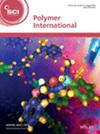求助PDF
{"title":"Effect of sawdust fillers loaded on Cucumis sativus fiber-reinforced polymer composite: a novel composite for lightweight static application","authors":"Thandavamoorthy Raja, Yuvarajan Devarajan","doi":"10.1002/pi.6704","DOIUrl":null,"url":null,"abstract":"<p>This research investigates the impact of sawdust fillers on <i>Cucumis sativus</i> fiber-reinforced polymer composites through a conventional hand layup process. The objective is to develop a novel material suitable for static applications that is both lightweight and environmentally sustainable. A range of analytical techniques including X-ray diffraction (XRD), Fourier transform infrared (FTIR) spectroscopy, mechanical testing, thermogravimetric analysis (TGA), scanning electron microscopy (SEM) and energy-dispersive X-ray (EDX) analysis were employed to thoroughly characterize the resulting composite material. By integrating <i>Cucumis sativus</i> fibers and sawdust fillers into a polymer matrix, the study demonstrates the potential to create materials with improved mechanical properties due to addition of sawdust filler, including tensile strength (27.61 MPa), flexural strength (32.84 MPa), impact resistance (14.7 J cm<sup>−2</sup>) and hardness (42). These enhancements, averaging at 16.2%, are attributed to the addition of sawdust filler, which opens new avenues for environmentally conscious engineering solutions. XRD analysis reveals the composite's crystalline structure, indicating a crystallinity index of 64.5% and the orientation of crystalline planes. FTIR spectroscopy identifies chemical bonding and C<span></span>O and CO functional groups present in the material with major peaks at 2123 and 2438 cm<sup>−1</sup>. TGA assesses the composite's thermal stability and decomposition behavior up to 380 °C. Additionally, SEM imaging elucidates the microstructural features and distribution of <i>Cucumis sativus</i> fibers and sawdust fillers within the epoxy matrix, while EDX analysis provides quantitative data on elemental composition. © 2024 Society of Chemical Industry.</p>","PeriodicalId":20404,"journal":{"name":"Polymer International","volume":"74 2","pages":"163-169"},"PeriodicalIF":3.6000,"publicationDate":"2024-10-07","publicationTypes":"Journal Article","fieldsOfStudy":null,"isOpenAccess":false,"openAccessPdf":"","citationCount":"0","resultStr":null,"platform":"Semanticscholar","paperid":null,"PeriodicalName":"Polymer International","FirstCategoryId":"92","ListUrlMain":"https://scijournals.onlinelibrary.wiley.com/doi/10.1002/pi.6704","RegionNum":4,"RegionCategory":"化学","ArticlePicture":[],"TitleCN":null,"AbstractTextCN":null,"PMCID":null,"EPubDate":"","PubModel":"","JCR":"Q2","JCRName":"POLYMER SCIENCE","Score":null,"Total":0}
引用次数: 0
引用
批量引用
Abstract
This research investigates the impact of sawdust fillers on Cucumis sativus fiber-reinforced polymer composites through a conventional hand layup process. The objective is to develop a novel material suitable for static applications that is both lightweight and environmentally sustainable. A range of analytical techniques including X-ray diffraction (XRD), Fourier transform infrared (FTIR) spectroscopy, mechanical testing, thermogravimetric analysis (TGA), scanning electron microscopy (SEM) and energy-dispersive X-ray (EDX) analysis were employed to thoroughly characterize the resulting composite material. By integrating Cucumis sativus fibers and sawdust fillers into a polymer matrix, the study demonstrates the potential to create materials with improved mechanical properties due to addition of sawdust filler, including tensile strength (27.61 MPa), flexural strength (32.84 MPa), impact resistance (14.7 J cm−2 ) and hardness (42). These enhancements, averaging at 16.2%, are attributed to the addition of sawdust filler, which opens new avenues for environmentally conscious engineering solutions. XRD analysis reveals the composite's crystalline structure, indicating a crystallinity index of 64.5% and the orientation of crystalline planes. FTIR spectroscopy identifies chemical bonding and C O and CO functional groups present in the material with major peaks at 2123 and 2438 cm−1 . TGA assesses the composite's thermal stability and decomposition behavior up to 380 °C. Additionally, SEM imaging elucidates the microstructural features and distribution of Cucumis sativus fibers and sawdust fillers within the epoxy matrix, while EDX analysis provides quantitative data on elemental composition. © 2024 Society of Chemical Industry.
木屑填料对黄瓜纤维增强聚合物复合材料的影响:一种新型轻量化静态复合材料
采用传统手工铺层工艺,研究了木屑填料对黄瓜纤维增强聚合物复合材料的影响。目标是开发一种既轻又环保的适合静态应用的新型材料。采用一系列分析技术,包括x射线衍射(XRD),傅里叶变换红外(FTIR)光谱,力学测试,热重分析(TGA),扫描电子显微镜(SEM)和能量色散x射线(EDX)分析,对所得复合材料进行了全面表征。通过将黄瓜纤维和锯末填料整合到聚合物基体中,该研究表明,由于添加了锯末填料,该材料具有改善机械性能的潜力,包括抗拉强度(27.61 MPa)、抗弯强度(32.84 MPa)、抗冲击性(14.7 J cm−2)和硬度(42)。由于添加了锯末填料,平均提高了16.2%,这为具有环保意识的工程解决方案开辟了新的途径。XRD分析揭示了复合材料的晶体结构,结晶度指数为64.5%,晶面取向明显。FTIR光谱鉴定出材料中存在化学键和C - _ - O和C - _ - O官能团,主峰位于2123和2438 cm−1。TGA评估复合材料的热稳定性和高达380°C的分解行为。此外,SEM成像揭示了环氧基体中黄瓜纤维和木屑填料的微观结构特征和分布,EDX分析提供了元素组成的定量数据。©2024化学工业学会。
本文章由计算机程序翻译,如有差异,请以英文原文为准。




 求助内容:
求助内容: 应助结果提醒方式:
应助结果提醒方式:


